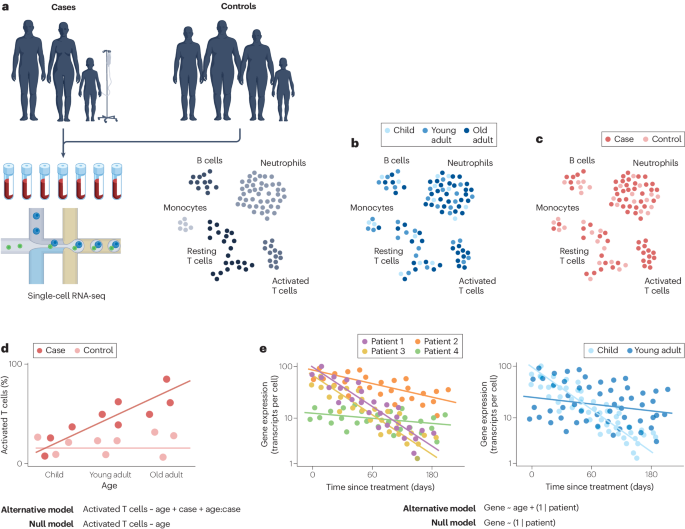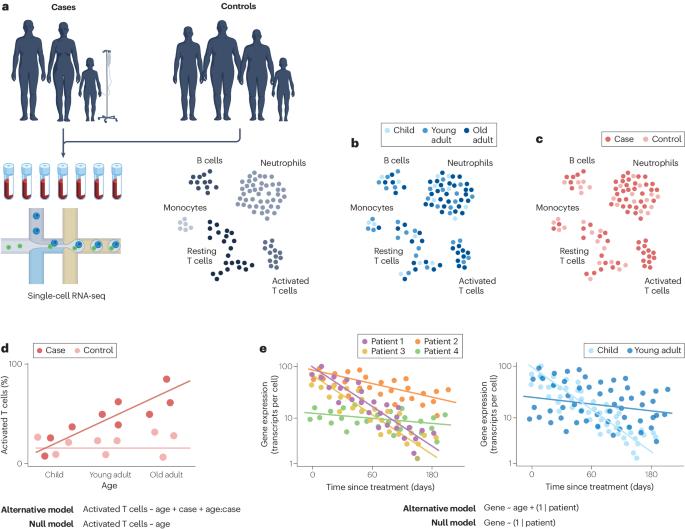以单细胞分辨率的统计推断揭示基因功能
IF 52
1区 生物学
Q1 GENETICS & HEREDITY
引用次数: 0
摘要
单细胞和空间分子剖析测定在灵敏度、分辨率和通量方面都有大幅提高。将这些技术应用于人类和模式生物的标本,有望对细胞类型进行全面编目,揭示它们在发育过程中的血统起源,并鉴别它们对疾病发病机制的贡献。此外,成本的快速下降也使控制良好的扰动实验和队列研究变得非常容易获得,从而揭示了细胞、组织和整个生物体表型的形成机制。解读即将涌现的大量单细胞数据(其中大部分将具有空间分辨率)将给现有的计算管道带来巨大负担。然而,统计概念、模型、工具和算法可以重新用于解决目前在发育和疾病的遗传和分子生物学研究中出现的问题。在此,我将回顾近期技术创新有望解决的问题如何通过主要类别的统计工具来解决。本文章由计算机程序翻译,如有差异,请以英文原文为准。


Revealing gene function with statistical inference at single-cell resolution
Single-cell and spatial molecular profiling assays have shown large gains in sensitivity, resolution and throughput. Applying these technologies to specimens from human and model organisms promises to comprehensively catalogue cell types, reveal their lineage origins in development and discern their contributions to disease pathogenesis. Moreover, rapidly dropping costs have made well-controlled perturbation experiments and cohort studies widely accessible, illuminating mechanisms that give rise to phenotypes at the scale of the cell, the tissue and the whole organism. Interpreting the coming flood of single-cell data, much of which will be spatially resolved, will place a tremendous burden on existing computational pipelines. However, statistical concepts, models, tools and algorithms can be repurposed to solve problems now arising in genetic and molecular biology studies of development and disease. Here, I review how the questions that recent technological innovations promise to answer can be addressed by the major classes of statistical tools. Single-cell, spatial and multi-omic profiling technologies generate large-scale data that reveal the output of genome-scale experiments across diverse cells, tissues and organisms. Cole Trapnell reviews the underlying core statistical challenges that need to be tackled to harness the power of these technologies and advance our understanding of gene function in health and disease.
求助全文
通过发布文献求助,成功后即可免费获取论文全文。
去求助
来源期刊

Nature Reviews Genetics
生物-遗传学
CiteScore
57.40
自引率
0.50%
发文量
113
审稿时长
6-12 weeks
期刊介绍:
At Nature Reviews Genetics, our goal is to be the leading source of reviews and commentaries for the scientific communities we serve. We are dedicated to publishing authoritative articles that are easily accessible to our readers. We believe in enhancing our articles with clear and understandable figures, tables, and other display items. Our aim is to provide an unparalleled service to authors, referees, and readers, and we are committed to maximizing the usefulness and impact of each article we publish.
Within our journal, we publish a range of content including Research Highlights, Comments, Reviews, and Perspectives that are relevant to geneticists and genomicists. With our broad scope, we ensure that the articles we publish reach the widest possible audience.
As part of the Nature Reviews portfolio of journals, we strive to uphold the high standards and reputation associated with this esteemed collection of publications.
 求助内容:
求助内容: 应助结果提醒方式:
应助结果提醒方式:


